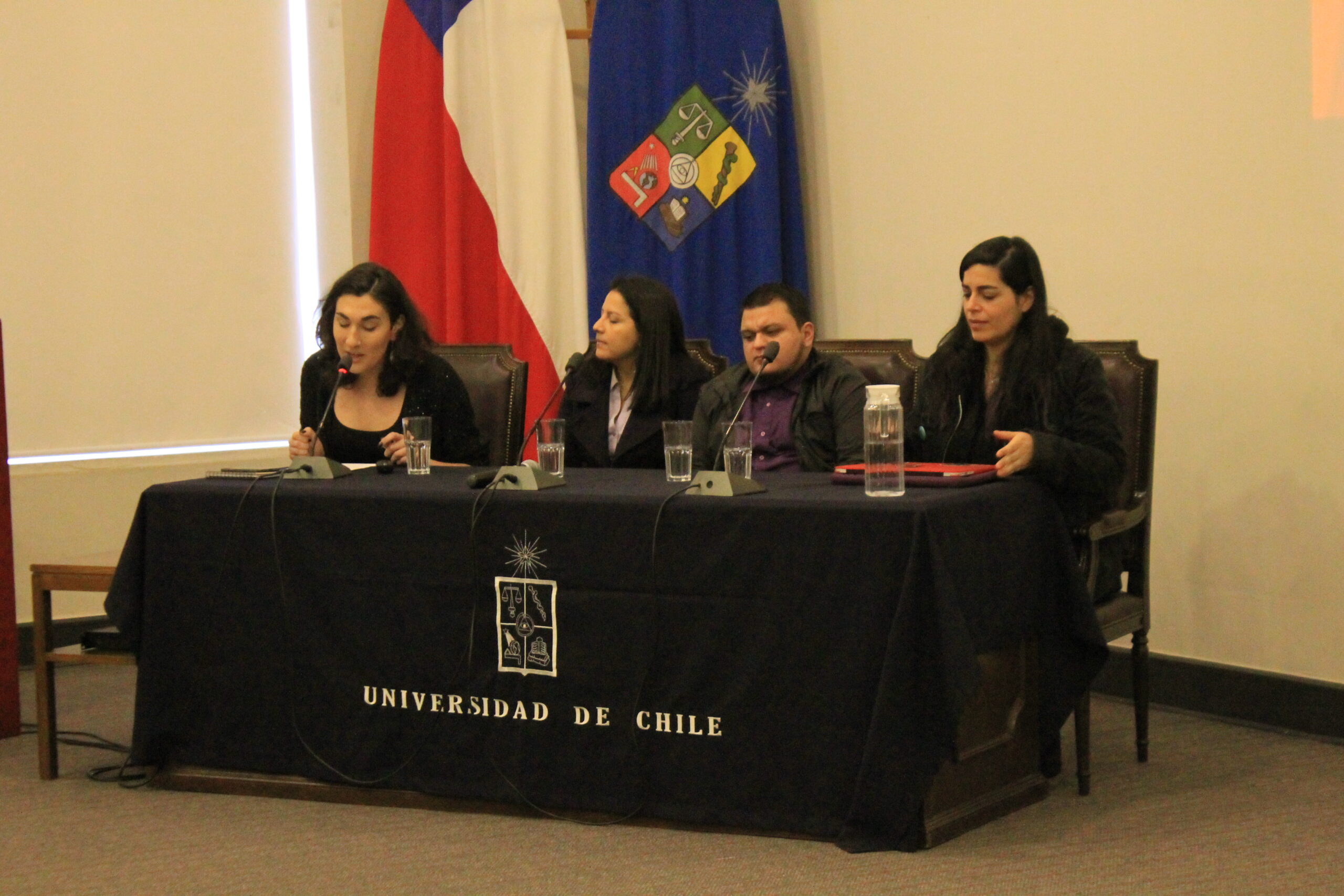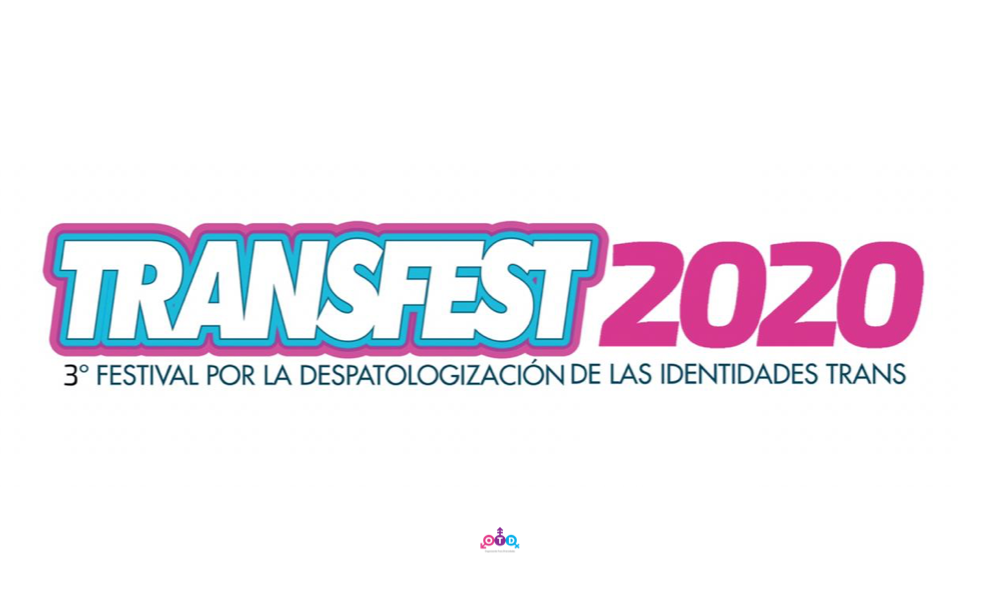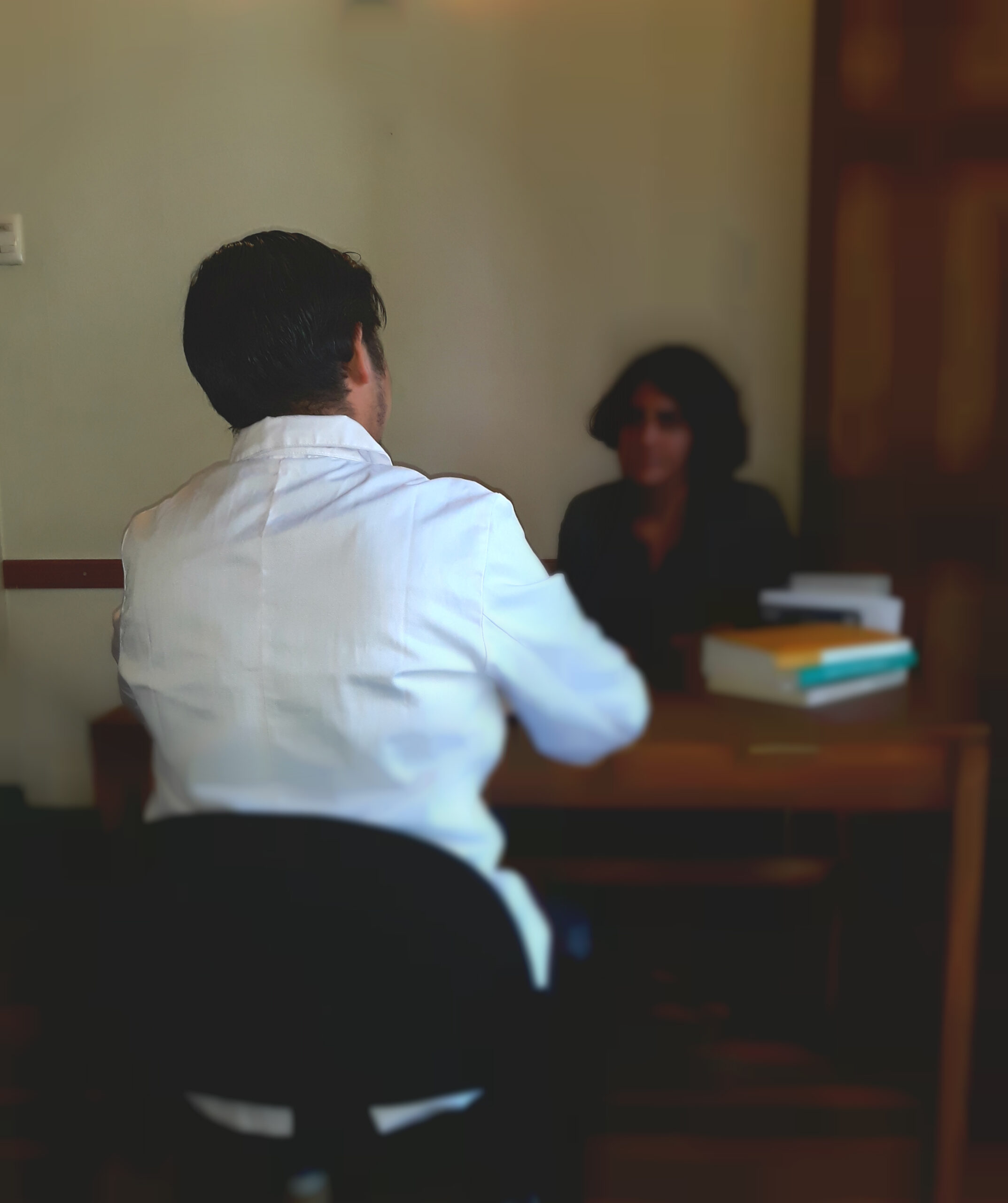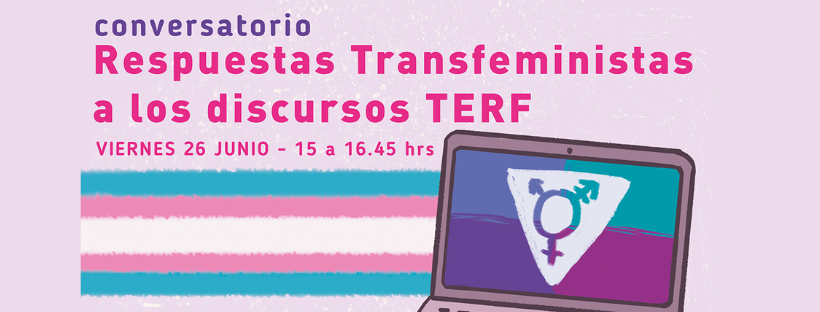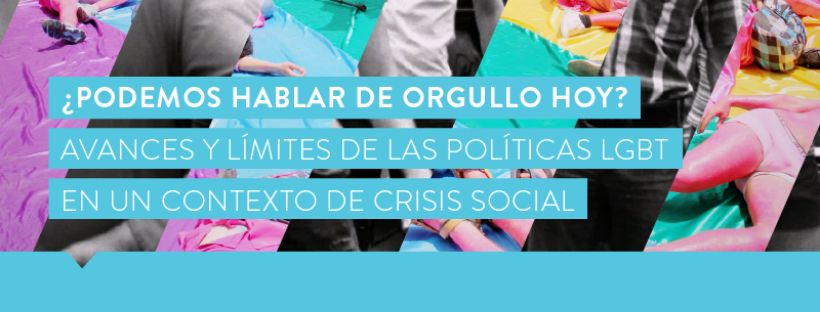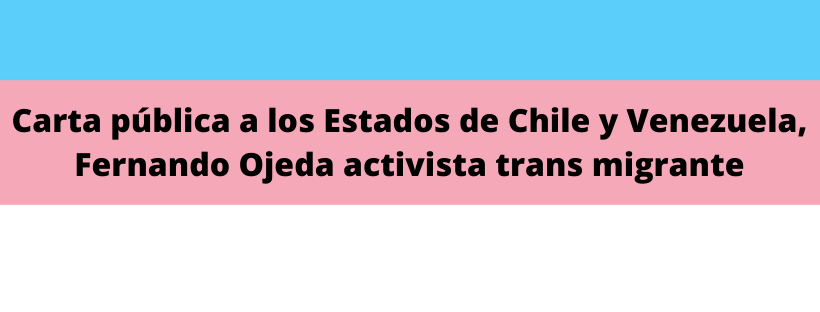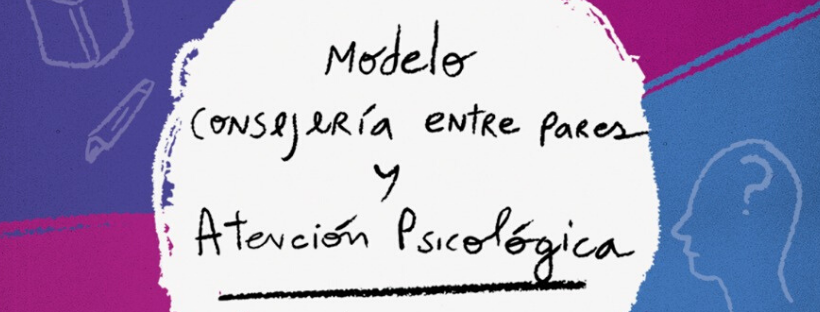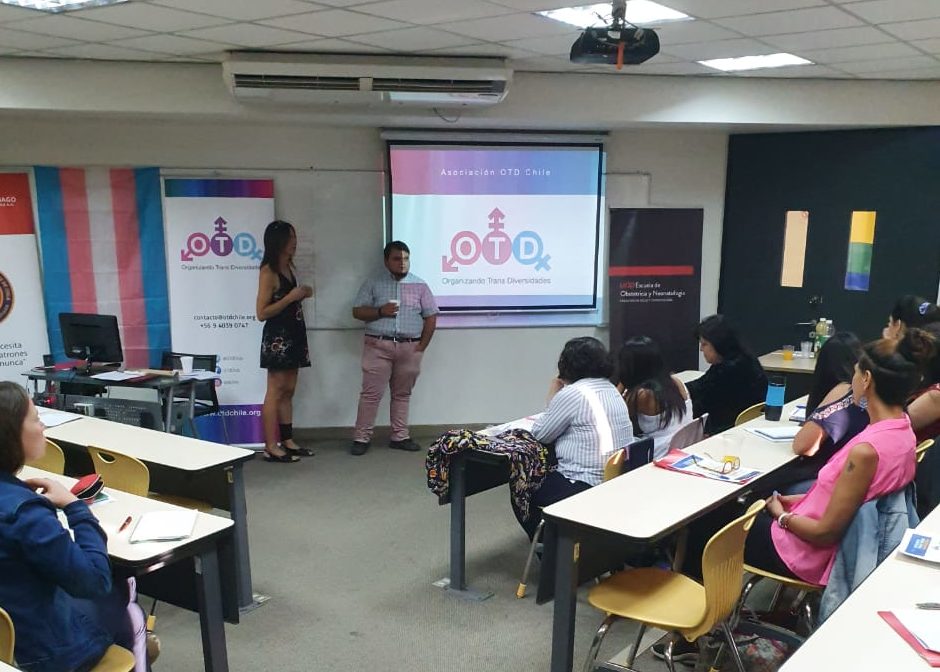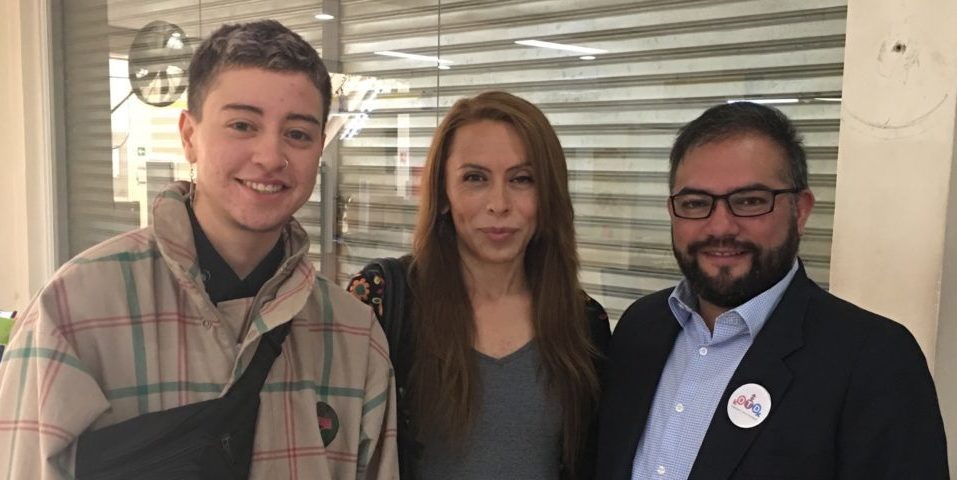(Santiago, August 13, 2019) .- OTD Chile and the Office of Equity and Inclusion of the University of Chile (OEI) organized this Tuesday, August 13, the first Trans Integral Health Day formed by two tables of specialists in the area of health and activists, in the Central House of the University of Chile.
In the first table moderated by Emilia Schneider, president of the Fech, the Integral Health and Depathologization in Public Policies were discussed where they talked, Lelya Troncoso; feminist social and academic psychologist of the U of Chile, Leonel Catoni; OTD psychologist and health coordinator and Carol Barragán; clinical psychologist and care coordinator of OTD, while at the second table led by Shane Cienfuegos, a non-binarie activist, they presented on body modifications in trans people, needs and critical nodes, Enzo Devoto; endocrinologist and academic doctor of the U of Chile, Javi Orellana; surgeon of the Department of Gender and Health of COLMED and Cynthia Aranguiz; midwife and technical advisor of the Directorate of the South East Metropolitan Health Service.
Lelya Troncoso mentioned that a co-investigation carried out from an intersectional feminist perspective on sex-diverse people who have come to the public health service in different regions of Chile, in the preliminary results found that the majority of trans people are excluded and violated in these services since health institutions operate according to heteronorma.
For Leonel Catoni in Chile the health system is not trained to meet the needs of the trans population, in addition to stating “it is not possible that in our country today the curriculum of psychology, endocrinology, transsexuality, specialists are not included that exist have been trained after graduation. I work with trans people all the time and they have told me, for example, ‘I went to the finding doctor and he sent me to do a scan to see if I was or was not trans’, so this shows that it is often improvised from ignorance.
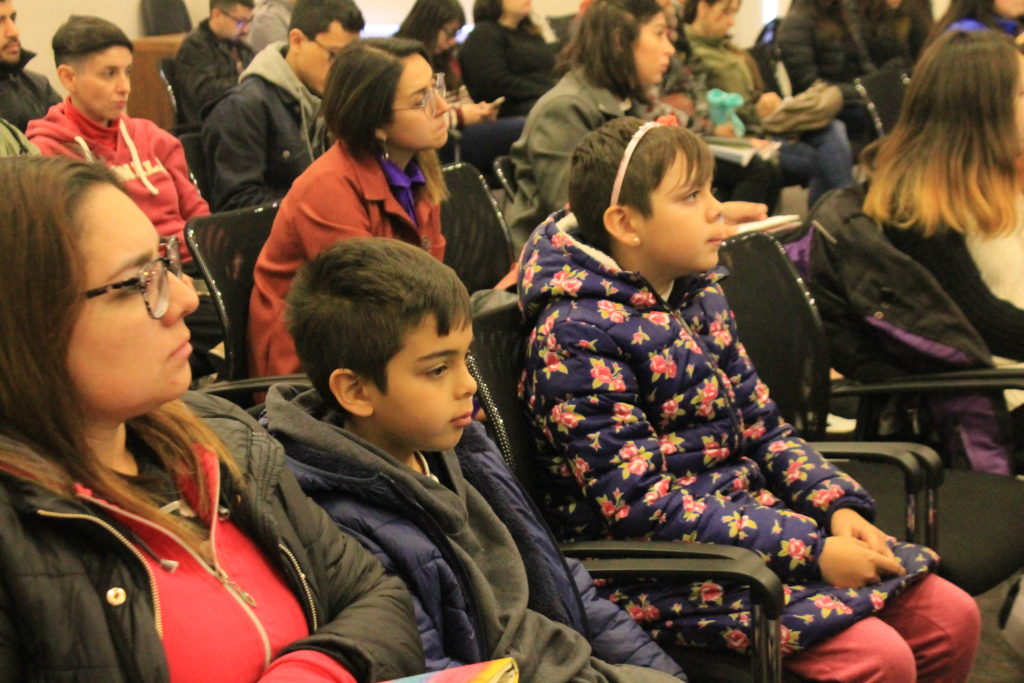
Fotography, Paula Ximena Contreras (Office of Equity and Inclution of the University of Chile).
On the other hand, Carol Barragán briefly reported on the model of care that has been managed in OTD since 2014, as pioneers, where through teamwork, composed of trans people of different identities, professionals in the area of psychology and map counseling, “this model of comprehensive, inclusive, non-pathologizing, non-victimizing care, focused on trans people and their current needs, fosters self-determination, autonomy and respect for identity, generates recognition and acceptance processes , with a focus on human rights. We provide guidance and support to trans people, their families and couples. ” He stressed that this work is not only carried out in Santiago but in other latitudes, even online, in addition to generating protected spaces for transgender citizens, where they feel comfortable, respect and listen.
The doctor Javi Orellana thanked for the invitation and stressed the need to decentralize activities in relation to transdiversities, in addition to mentioning that his experience is very particular because in addition to being a trans person is a health professional, for him it is not enough with having integral health protocols if they are going to be sheltered in hospitals, he also said that it is necessary to eliminate the paternalistic model that dominates in Chile, where the doctor wants to be superior to the patient instead of respecting the autonomy of the patient and ratified them always they must inform enough and have the consent of the trans patient, “when a patient comes to seek help, he must help but never make decisions for them and never question them but accompany them.”
From the perspective of Cynthia Aránguiz, a social revolution is taking place in the country that invites us to take out the stereotypes that we had prefixed from our history and in which everyone should help build, since this transcends the professional theme and It covers all everyday life, while explaining that there is a need for public policies that allow resources and training for professionals to provide better treatment to transgender people in health institutions since what exists today are local initiatives.
To conclude the day, the renowned endocrinologist Enzo Devoto made a historical journey on medicine and transsexuality both in the world and in Chile, from hormonal treatments to genital transformation surgery and in turn supported the recently approved Gender Identity Law in the country.
